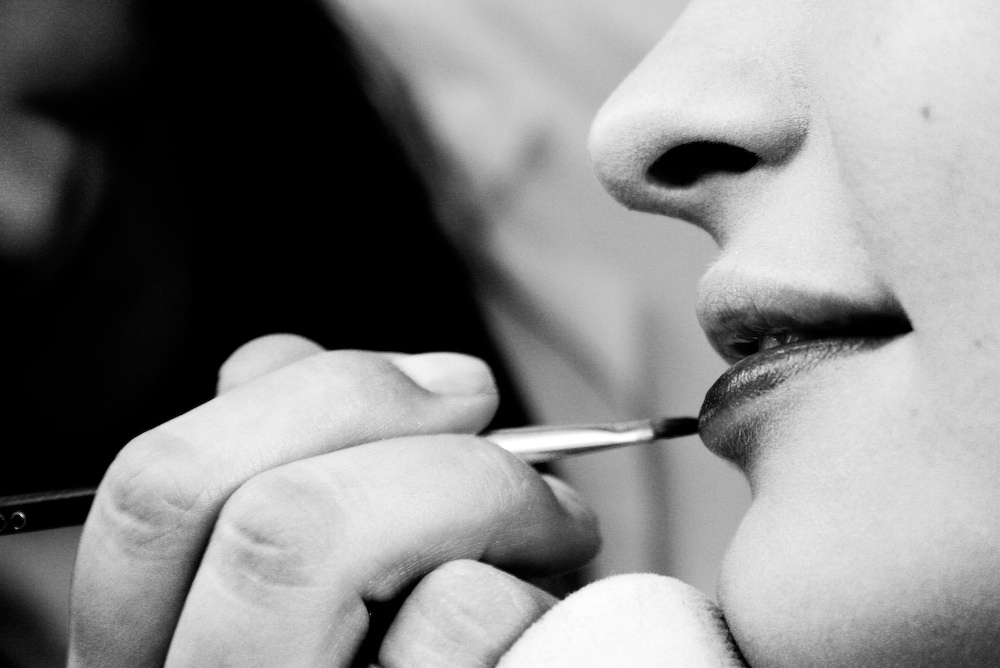This week I deviated a bit from our usual poem per week, since I had a need to read something by a sharp, concise writer of both poetry and flash fiction: Barbara Zimmermann.
Flash fiction is a style of literature of extreme brevity. There is no widely accepted definition of the length of the category. Some self-described markets for flash fiction impose caps as low as three hundred words, while others consider stories as long as a thousand words to be flash fiction.
Also as a writer of poetry and flash fiction, I consider this a branch, or a second cousin, if you will, of poetry, considering poetry is an art of boiling an idea, or an image, or a thought down into its most powerful, succinct parts. Think Twitter for literature, but slapped with Hemingway’s iceberg theory.
Flash fiction compresses a narrative or story into less than 1,000 words: a difficult feat, but beautiful and thrilling if done correctly. And Barabara Zimmermann does it correctly. Here, in my opinion, Barbara examines the life of a woman cursed with the consequences of her bad decisions in a society that has passed her by.
This piece, according to Barbara, bloomed from “one of those writing exercise where you place a famous character from literature in a modern setting.”
See if you can discern Barbara’s inspirational character from literature…

Southern Discomfort
Louise sat at the far table in McDonald’s, her shoulders hunched as she concentrated on the form before her. Social Security Number, Work Experience, Education. They would be quite fortunate to hire someone like me, she thought, her thin fingers tightly gripping the pen in her right hand. She filled in the information, underlining her experience as a teacher and her degree, cautiously giving references that she knew would vouch for her sterling character. She glanced about the restaurant: a foursome of teenage girls sat at one table, eating French fries, their table manners despicable. Perhaps she could persuade the manager to put sprigs of fresh flowers—daisies or a pink carnation with a stem of baby’s breath—in a glass vase on each table. Add a touch of class.
“Well, are you finished, Ma’am?”
Startled, Louise glanced up at the manager who was scanning the paper on the table. “Why, yes, sir, all done.” She smiled at the young man, surely no older than twenty-one if a day.
He sat down across from her and held out his hand. She placed her hand in his, pressing her palm into his warm flesh, and said, “Louise Couvrette. And you’re?”
“Sal Romero,” he said, slipping his hand from her grasp. “May I see your application?”
Oh, dear, she thought, he must think I’m quite forward. She lifted the linen handkerchief from her lap and twisted it in her hands, wishing she’d applied a fresh coat of lipstick. The light from the window, she was sure, magnified the lines grooved into her forehead, the puffiness beneath her eyes, the loosening flesh at the bend of her throat. Her mouth, she had always believed, was her most attractive feature: the thin upper lip with pointy tips and the full lower lip. That and her hands fluttering in concert with her spoken words and laughter bubbling forth at the appropriate moments, she suspected, bedazzled her audience. As he read her resume, she thought of her barely adequate room at the YWCA with the beat-up dresser drawers, a lumpy bed, the common bathroom. The other residents complained about her long hot baths and the steamed-up mirror. Despite the discomforts, if she could make enough money to pay one more month’s rent, her prospects, she was sure, would improve.
“Why aren’t you teaching?”
She had prepared herself for that question, aware that she was overqualified to flip hamburgers. “I’m working on my memoir and I really want to have time to write. Teaching follows you home, grading and lesson plans. You know.”
His translucent blue eyes fixed on hers as if he were consuming her words and regurgitating them right back at her. She hoped that he wouldn’t probe further. She’d omitted the last high school at which she’d taught, certain that the brief indiscretion with the principal would remain her secret. She’d chosen her outfit carefully for the interview: a red jersey sheath with navy piping, and navy blue pumps. She’d curled her hair the night before, sleeping fitfully all night, bobby pins piercing her scalp and cutting into her fingers when she turned to lie in the fetal position, her hands clasped together beneath her cheek.
“At first you’d have to work the early shift, breakfast, seven to ten, five days a week.”
“Why I didn’t realize you opened so early. Isn’t there a late shift available? I do believe a lady looks her best after a good night’s rest, don’t you?” She hoped that he was a gentleman who appreciated the time it took for a woman to cream her skin, apply makeup, spray Tabu at the pulse points and cleavage.
His arms were muscular, the short sleeves of his shirt straining against his biceps, and he had a wrestler’s neck. She wondered if he drank beer straight from the bottle, belching uncouthly after guzzling the contents in one or two gulps. He’d need her tutelage on fine drinking: a martini or whiskey neat before dinner, sipping slowly to appreciate the warmth sliding down the throat and filling the chest with comfort. Why she could invite him over one evening, after she’d worked there a week or so, fix him chicken-fried steak, creamed corn, sliced tomatoes. Later, she could play Dinah Washington’s “Sunday Kind of Love,” slow-step her way into his life.
“Sorry, best I could do is maybe an occasional night shift, seven to eleven, on Friday and Saturday. Otherwise, mornings. You’ve got to take what nobody else wants as the new kid.”
He was smiling at her. She wet her lips and smiled back. Then it struck her that he could be betting on her turning down the gruesome hours.
“Yes, sir. I’ll work it out.” She couldn’t imagine getting up at five in the morning to get ready. She wondered if she could just stay up all night, spray a touch of Tabu, gargle Listerine, then make it through three hours without accidentally dipping her hand into the boiling oil instead of the French fries or gagging when slapping raw hamburger onto the grill. She calculated the crumpled bills in her purse, forty-seven dollars or so. A week away from the poor farm.
He was frowning now, and he coughed before saying, “Okay, be here at six-forty-five in the morning.”
She stood and held out her hand. He nodded. Blushing, she swept her right hand upwards to pat her hair and said, “You won’t be sorry, Mr. Romero.”
She could feel his eyes following her out the door and felt a pressure near her heart, a familiar warning sign that made her cringe. She straightened her shoulders, smoothed the front of her dress, her right hand lingering for a moment at her bosom before she turned to force a smile in his direction. She could only make out her own reflection in the window: the sun was low in the horizon, her top curls framed like a lop-sided tiara, and the passing traffic behind her, glittering streamers of chrome.
“Southern Discomfort” was originally published in New Millennium Writings.
Barbara Zimmermann’s fiction, essays, and poems have been published in numerous literary journals and anthologies including New Millennium Writings (in which two separate issues contained her first and second prize winning flash fictions), Rockhurst Review, Earth Daughters #72, Kaleidoscope, Pleiades, Out of Line, and The Deadly Writer’s Patrol. She is also the author of James Lee Burke and the Soul of Dave Robicheaux (McFarland 2006).
Photo credit:  Lipstick by Marcin Kargol is licensed under a Creative Commons Attribution 4.0 International License.
Lipstick by Marcin Kargol is licensed under a Creative Commons Attribution 4.0 International License.





Leave a Reply